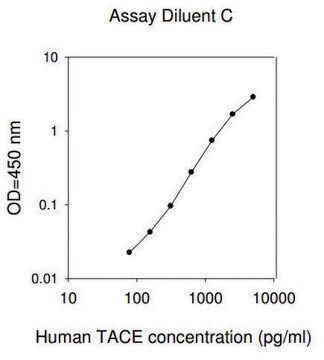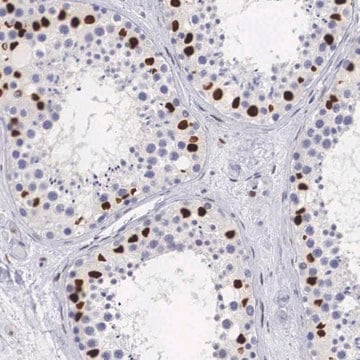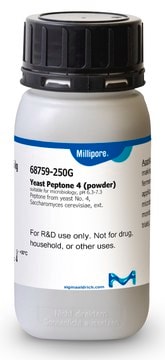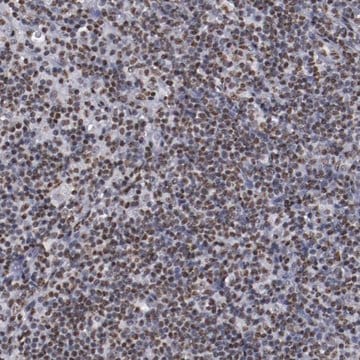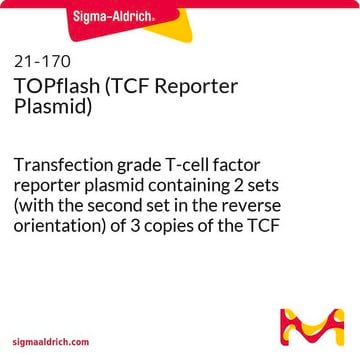Wichtige Dokumente
R5028
Monoclonal Anti-hnRNP-C1/C2 antibody produced in mouse
clone 4F4, purified immunoglobulin, buffered aqueous solution
Synonym(e):
Anti-Heterogeneous Nuclear Ribonucleoprotein-C1/C2
About This Item
Empfohlene Produkte
Biologische Quelle
mouse
Qualitätsniveau
Konjugat
unconjugated
Antikörperform
purified immunoglobulin
Antikörper-Produkttyp
primary antibodies
Klon
4F4, monoclonal
Form
buffered aqueous solution
Mol-Gew.
antigen 41 kDa
antigen 43 kDa
Speziesreaktivität
monkey, human, chicken, hamster
Methode(n)
immunocytochemistry: suitable
immunoprecipitation (IP): suitable
indirect ELISA: suitable
microarray: suitable
western blot: 0.1-0.2 μg/mL using HeLa cell nuclear extract
Isotyp
IgG1
UniProt-Hinterlegungsnummer
Versandbedingung
dry ice
Lagertemp.
−20°C
Posttranslationale Modifikation Target
unmodified
Angaben zum Gen
human ... HNRNPC(3183)
Allgemeine Beschreibung
Immunogen
Anwendung
- antibody microarray
- western blotting
- enzyme linked immunosorbent assay (ELISA)`
- immunoprecipitation
- immunocytochemistry
Biochem./physiol. Wirkung
Physikalische Form
Haftungsausschluss
Sie haben nicht das passende Produkt gefunden?
Probieren Sie unser Produkt-Auswahlhilfe. aus.
Lagerklassenschlüssel
12 - Non Combustible Liquids
WGK
nwg
Flammpunkt (°F)
Not applicable
Flammpunkt (°C)
Not applicable
Hier finden Sie alle aktuellen Versionen:
Analysenzertifikate (COA)
Die passende Version wird nicht angezeigt?
Wenn Sie eine bestimmte Version benötigen, können Sie anhand der Lot- oder Chargennummer nach einem spezifischen Zertifikat suchen.
Besitzen Sie dieses Produkt bereits?
In der Dokumentenbibliothek finden Sie die Dokumentation zu den Produkten, die Sie kürzlich erworben haben.
Unser Team von Wissenschaftlern verfügt über Erfahrung in allen Forschungsbereichen einschließlich Life Science, Materialwissenschaften, chemischer Synthese, Chromatographie, Analytik und vielen mehr..
Setzen Sie sich mit dem technischen Dienst in Verbindung.